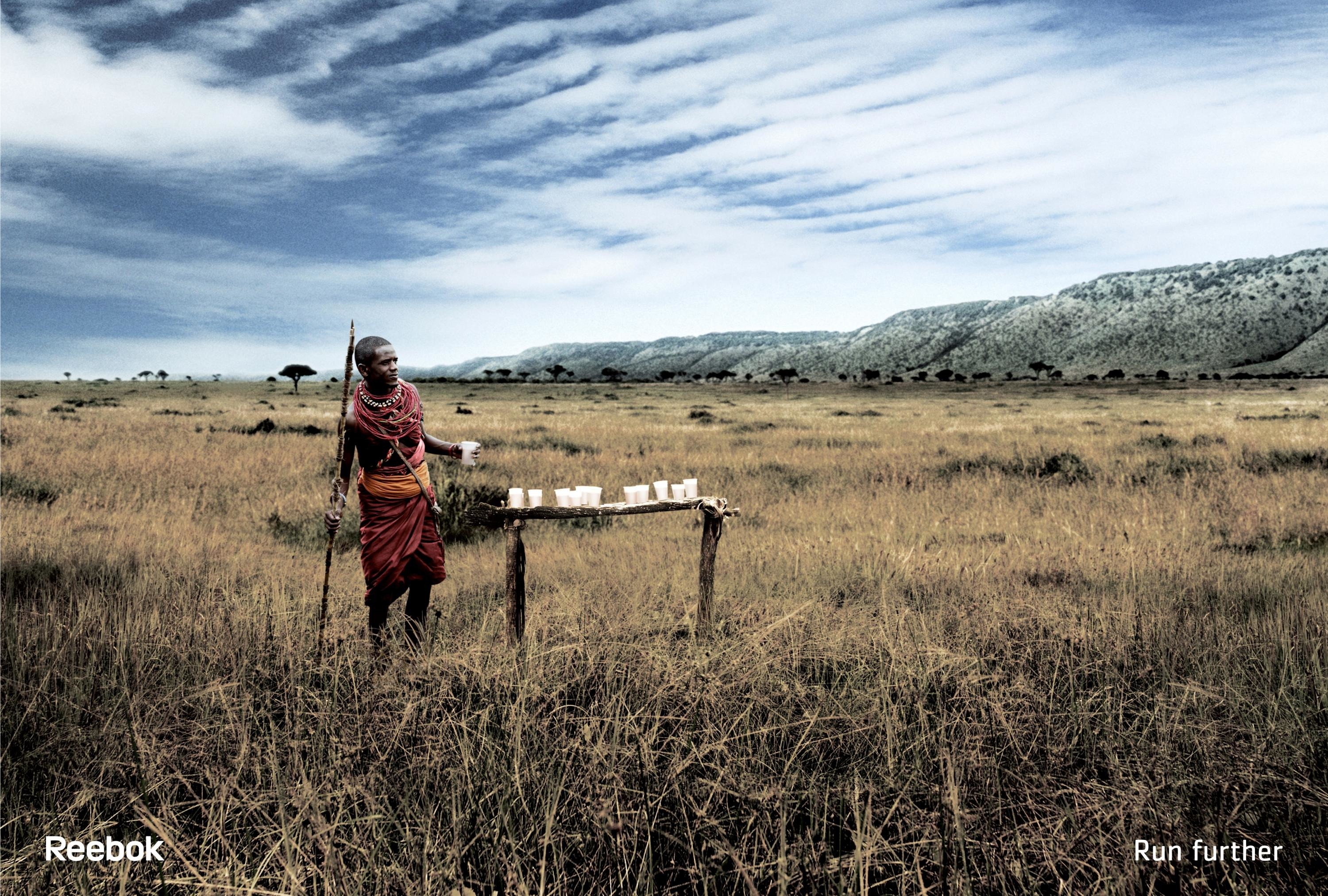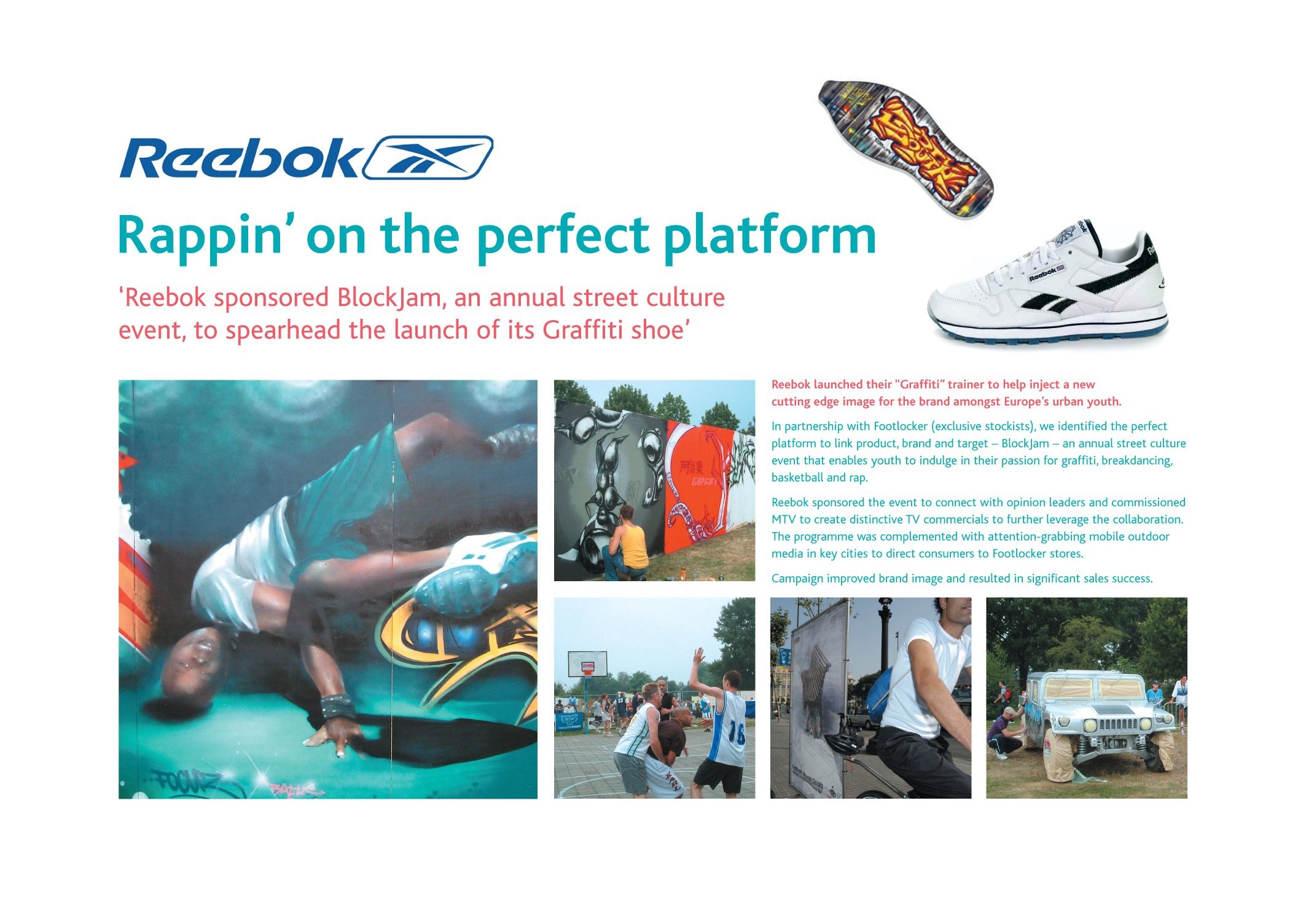Cannes Lions
Runner 321
FCB TORONTO / ADIDAS / 2024
Awards:

Overview
Entries
Credits
Overview
Background
When people with Down syndrome don’t see themselves represented in sport, they aren’t able to see what’s possible for them. As a brand, adidas has a unique mission to break down barriers for marginalized communities and demonstrate to the world that ‘impossible is nothing’.
As part of their goal to partner with the best athletes in the world from diverse backgrounds, adidas had recently sponsored Chris Nikic—the first athlete with Down syndrome to complete the Ironman. This made Chris the first globally-sponsored athlete with Down syndrome. Chris is a shining example of what is possible and an inspiration for the next generation of neurodivergent athletes.
Our objective was to create a social movement to include neurodivergent athletes in the world’s most accessible sport: running. We targeted the six major marathons to help drive awareness and to enlist a minimum of 100 races to add a Runner 321 in 2023.
Idea
Sports fans idolize and identify with those who achieve the impossible. One of the most common symbols for inspiring the next generation of athletes is an iconic number. Michael Jordan’s 23, Lionel Messi’s 10, or Wayne Gretzky’s 99. Iconic numbers that represent perseverance, dedication, and the pinnacle of athletic success.
Iconic numbers have been revered as a symbol of the best athletes of all time. In reality, they’ve only represented athletes that fit within the confinements of mainstream sport. We set out to create the first iconic number to represent an entire community of neurodivergent athletes who are exceeding what society thinks they can achieve.
Introducing Runner 321, the movement wherein adidas asks the world’s largest organized marathons—including four that are sponsored by Nike, New Balance, and Asics—to reserve Bib 321, representing Trisomy 21 for people with Down syndrome, for a neurodivergent athlete who qualifies.
Strategy
Our target was neurodivergent athletes, aspiring and current, who are often relegated to separate competitions. These separate events signal that neurodivergent athletes are incapable of participating in mainstream competitions, which is far from the truth. Our strategy was to partner with the right brand and the right athlete to create a social movement of inclusion.
As a global sportswear manufacturer, adidas was in a unique position to bring about historic change for neurodivergent athletes. adidas’ fundamental belief is that sport has the power to change lives, making them perfectly suited to remove barriers for people with Down syndrome.
Chris Nikic— the first athlete with Down syndrome to complete the Ironman— was the perfect person to lead a movement to inspire the next generation of neurodivergent athletes. Chris’ partnership with adidas made him the first globally sponsored athlete with Down syndrome. Chris shows what is possible for the neurodivergent community.
Description
Background:
As part of their goal to partner with the best athletes in the world from diverse backgrounds, adidas had recently sponsored Chris Nikic—the first athlete with Down syndrome to complete the Ironman. This made Chris the first globally-sponsored athlete with Down syndrome. Chris is a shining example of what is possible and an inspiration for the next generation of neurodivergent athletes everywhere; making him the perfect spokesperson for Runner 321.
adidas’ mission to break down barriers for marginalized communities and demonstrate to the world that ‘impossible is nothing’. So we conducted research to understand how the brand could best support the very community Chris represents: athletes with Down syndrome. The Mindsets Paper, a peer-reviewed research study, proved the cognitive benefits of fitness for people with Down syndrome (https://www.mdpi.com/1660-4601/20/23/7121).
The incremental medical costs for someone with Down syndrome can be up to $900,000US over a lifetime. That cost, taken on by families and by the healthcare system, could be reduced dramatically if people with Down syndrome were encouraged to exercise.
Creative Challenge:
Knowing the community could reap real benefits if they incorporated fitness in their lives—physically, cognitively and even financially—we wanted to encourage people with Down syndrome worldwide to get active.
The challenge was a lack of representation. When people with Down syndrome don’t see themselves in sport, they aren’t able to see what’s possible. A lack of visibility just confirms assumptions that they are incapable, assumptions the community then internalizes.
Solution:
Create a social movement for the visibility of neurodivergent athletes within the world’s most accessible sport: running.
Insight: Iconic numbers have been revered as a symbol of the best athletes of all time. In reality, they’ve only represented athletes that fit within the confines of mainstream sport.
Idea: adidas will ask the world’s largest organized marathons to reserve Bib 321, representing Trisomy 21 (the genetic difference characteristic of Down syndrome), for a neurodivergent athlete.
Execution:
On World Down Syndrome Day, March 21, 2022 and roughly one month before the Boston Marathon, we launched the campaign on adidas’ and Chris Nikic’s social pages with a long-form video, formally introducing Chris Nikic as the first adidas athlete with Down syndrome and the first-ever Runner 321. The video shed light on the need for visibility of neurodivergent athletes and encouraged our target to get involved via our destination site.
We held activations at the NYC and Boston Marathons with a takeover of the New York adidas store on 5th Avenue, and cheering sections at mile 3.21 of the races. Once Chris completed the Boston Marathon, he handed his bib to the next Runner 321, Kayleigh Williamson, in preparation for the 2023 race.
Our campaign landing page, adidasrunner321.com, served as an informational resource and path to getting involved. The site was segmented for three different audiences: 1) neurodivergent athletes applying to be the next Runner 321, 2) race organizers capable of making space for a Runner 321 at their event, and 3) supporters of the Runner 321 movement.
Execution
Launched on World Down Syndrome Day, March 21, 2022, our inspirational video showcased adidas sponsored athlete Chris Nikic. Our campaign landing page encouraged other races to get involved, and offered a Runner 321 toolkit with race instructions, social posts, and more.
We held activations at the NYC and Boston Marathons with a takeover of the New York adidas store on 5th Avenue, and cheering sections at mile 3.21 of the races. Once Chris completed the Boston Marathon, he handed his bib to the next Runner 321, Kayleigh Williamson, in preparation for the 2023 race.
All six of the world’s major marathons (Boston, New York, Tokyo, London, Berlin, and Chicago) have now reserved Bib 321 for a neurodivergent athlete, despite four of them being sponsored by Nike, New Balance, and Asics, our toughest competitors.
Our movement has reached a global scale, and we continue to add more races.
Outcome
adidas’ Runner 321 campaign started a social movement that continues to grow. Our results include:
1. Get neurodivergent athletes the mainstream attention they deserve:
275M earned impressions including Forbes, NBC, ABC, and CBS.
2. Garner involvement from major marathons:
All six of the world’s largest marathons—London, Chicago, Berlin, Tokyo, New York, and Boston—held a spot for Runner 321 in their 2023 marathons—despite being sponsored by our biggest competitors.
3. Foster widespread involvement from marathons all over the world:
To date, 327 marathons are adding a Runner 321
4. Inspire the next generation of athletes with Down syndrome:
To date, 476 athletes have signed up to be the next Runner 321
Similar Campaigns
12 items







